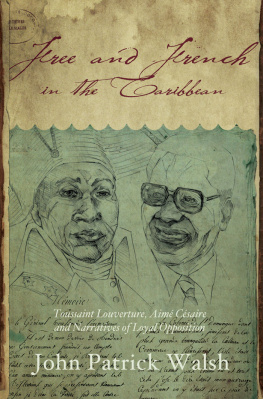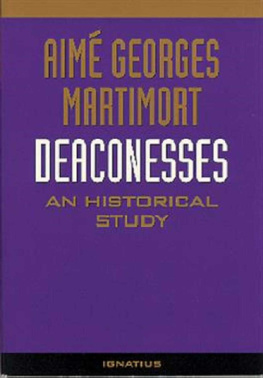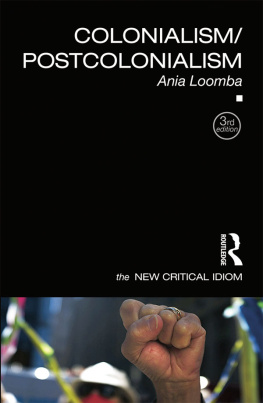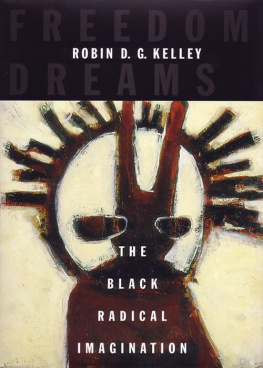Aime Cesaire - Discourse on Colonialism
Here you can read online Aime Cesaire - Discourse on Colonialism full text of the book (entire story) in english for free. Download pdf and epub, get meaning, cover and reviews about this ebook. year: 2001, publisher: Monthly Review Press, genre: Romance novel. Description of the work, (preface) as well as reviews are available. Best literature library LitArk.com created for fans of good reading and offers a wide selection of genres:
Romance novel
Science fiction
Adventure
Detective
Science
History
Home and family
Prose
Art
Politics
Computer
Non-fiction
Religion
Business
Children
Humor
Choose a favorite category and find really read worthwhile books. Enjoy immersion in the world of imagination, feel the emotions of the characters or learn something new for yourself, make an fascinating discovery.

- Book:Discourse on Colonialism
- Author:
- Publisher:Monthly Review Press
- Genre:
- Year:2001
- Rating:4 / 5
- Favourites:Add to favourites
- Your mark:
- 80
- 1
- 2
- 3
- 4
- 5
Discourse on Colonialism: summary, description and annotation
We offer to read an annotation, description, summary or preface (depends on what the author of the book "Discourse on Colonialism" wrote himself). If you haven't found the necessary information about the book — write in the comments, we will try to find it.
Discourse on Colonialism — read online for free the complete book (whole text) full work
Below is the text of the book, divided by pages. System saving the place of the last page read, allows you to conveniently read the book "Discourse on Colonialism" online for free, without having to search again every time where you left off. Put a bookmark, and you can go to the page where you finished reading at any time.
Font size:
Interval:
Bookmark:
Translated by Joan Pinkham. This version published by Monthly Review Press: New York and London, 1972. Originally published as Discours sur le colonialisme by Editions Presence Africaine, 1955.
COPYRIGHT: From a Counter-Racist perspective, this is nothing other than a mechanism employed by White Supremacists (Racists) that has been designed to control access to information by non-White people.
A civilization that proves incapable of solving the problems it creates is a decadent civilization.
A civilization that chooses to close its eyes to its most crucial problems is a stricken civilization.
A civilization that uses its principles for trickery and deceit is a dying civilization.
The fact is that the so-called European civilization "Western" civilization - as it has been shaped by two centuries of bourgeois rule, is incapable of solving the two major problems to which its existence has given rise: the problem of the proletariat and the colonial problem; that Europe is unable to justify itself either before the bar of "reason" or before the bar of "conscience"; and that, increasingly, it takes refuge in a hypocrisy which is all the more odious because it is less and less likely to deceive.
Europe is indefensible.
Apparently that is what the American strategists are whispering to each other.
That in itself is not serious.
What is serious is that "Europe" is morally, spiritually indefensible.
And today the indictment is brought against it not by the European masses alone, but on a world scale, by tens and tens of millions of men who, from the depths of slavery, set themselves up as judges.
The colonialists may kill in Indochina, torture in Madagascar, imprison in Black Africa, crackdown in the West Indies. Henceforth, the colonized know that they have an advantage over them. They know that their temporary, "masters" are lying.
Therefore, that their masters are weak.
And since I have been asked to speak about colonization and civilization, let us go straight to the principal lie which is the source of all the others.
Colonization and civilization?
Contents
- 1
In dealing with this subject, the commonest curse is to be the dupe in good faith of a collective hypocrisy that cleverly misrepresents problems, the better to legitimize the hateful solutions provided for them.
In other words, the essential thing here is to see clearly, to think clearly - that is, dangerously - and to answer clearly the innocent first question: what, fundamentally, is colonization? To agree on what it is not: neither evangelization, nor a philanthropic enterprise, nor a desire to push back the frontiers of ignorance, disease, and tyranny, nor a project undertaken for the greater glory of God, nor an attempt to extend the rule of law.
To admit once for all, without flinching at the consequences, that the decisive actors here are the adventurer and the pirate, the wholesale grocer and the ship owner, the gold digger and the merchant, appetite and force, and behind them, the baleful projected shadow of a form of civilization which, at a certain point in its history, finds itself obliged, for internal reasons, to extend to a world scale the competition of its antagonistic economies.
Pursuing my analysis, I find that hypocrisy is of recent date; that neither Cortez discovering Mexico from the top of the great teocalli, nor Pizzaro before Cuzco (much less Marco Polo before Cambaluc), claims that he is the harbinger of a superior order; that they kill; that they plunder; that they have helmets, lances, cupidities; that the slavering apologists came later; that the chief culprit in this domain is Christian pedantry, which laid down the dishonest equations Christianity= civilization, paganism= savagery, from which there could not but ensue abominable colonialist and racist consequences, whose victims were to be the Indians, the yellow peoples, and the Negroes.
That being settled, I admit that it is a good thing to place different civilizations in contact with each other that it is an excellent thing to blend different worlds; that whatever its own particular genius may be, a civilization that withdraws into itself atrophies; that for civilizations, exchange is oxygen; that the great good fortune of Europe is to have been a crossroads, and that because it was the locus of all ideas, the receptacle of all philosophies, the meeting place of all sentiments, it was the best center for the redistribution of energy.
But then I ask the following question: has colonization really placed civilizations incontact? Or, if you prefer, of all the ways of establishing contact, was it the best?
I answer no.
And I say that between colonization and civilization there is an infinite distance; that out of all the colonial expeditions that have been undertaken, out of all the colonial statutes that have been drawn up, out of all the memoranda that have been dispatched by all the ministries, there could not come a single human value.
First we must study how colonization works to decivilize the colonizer, to brutalize him in the true sense of the word, to degrade him, to awaken him to buried instincts, to covetousness, violence, race hatred, and moral relativism; and we must show that each time a head is cut off or an eye put out in Vietnam and in France they accept the fact, each time a little girl is raped and in France they accept the fact, each time a Madagascan is tortured and in France they accept the fact, civilization acquires another dead weight, a universal regression takes place, a gangrene sets in, a center of infection begins to spread; and that at the end of all these treaties that have been violated, all these lies that have been propagated, all these punitive expeditions that have been tolerated, all these prisoners who have been tied up and "interrogated, all these patriots who have been
- 2
tortured, at the end of all the racial pride that has been encouraged, all the boastfulness that has been displayed, a poison has been instilled into the veins of Europe and, slowly but surely, the continent proceeds toward savagery.
And then one fine day the bourgeoisie is awakened by a terrific reverse shock: the gestapos are busy, the prisons fill up, the torturers around the racks invent, refine, discuss.
People are surprised, they become indignant. They say: "How strange! But never mind-it's Nazism, it will. pass!" And they wait, and they hope; and they hide the truth from themselves, that it is barbarism, but the supreme barbarism, the crowning barbarism that sums up all the daily barbarisms; that it is Nazism, yes, but that before they were its victims, they were its accomplices; that they tolerated that Nazism before it was inflicted on them, that they absolved it, shut their eyes to it, legitimized it, because, until then, it had been applied only to non-European peoples; that they have cultivated that Nazism, that they are responsible for it, and that before engulfing the whole of Western, Christian civilization in its reddened waters, it oozes, seeps, and trickles from every crack.
Yes, it would be worthwhile to study clinically, in detail, the steps taken by Hitler and Hitlerism and to reveal to the very distinguished, very humanistic, very Christian bourgeois of the twentieth century that without his being aware of it, he has a Hitler inside him, that Hitler inhabits him, that Hitler is his demon, that if he rails against him, he is being inconsistent and that, at bottom, what he cannot forgive Hitler for is not crime in itself,
Font size:
Interval:
Bookmark:
Similar books «Discourse on Colonialism»
Look at similar books to Discourse on Colonialism. We have selected literature similar in name and meaning in the hope of providing readers with more options to find new, interesting, not yet read works.
Discussion, reviews of the book Discourse on Colonialism and just readers' own opinions. Leave your comments, write what you think about the work, its meaning or the main characters. Specify what exactly you liked and what you didn't like, and why you think so.







